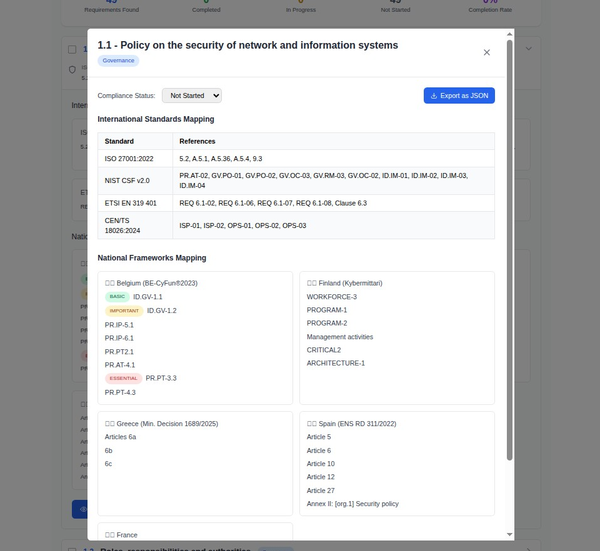Ensuring GDPR Compliance in Marketing Activities: A Strategic Approach for Companies

In today's digital age, where data privacy and security are paramount, companies must navigate the complex landscape of regulations such as the General Data Protection Regulation (GDPR). The GDPR, with its stringent rules on data processing and privacy, has fundamentally changed how companies approach marketing activities. Drawing insights from the "EU GDPR Casebook 2023," this article outlines a strategic approach for companies to ensure that their marketing activities are fully compliant with GDPR and other relevant privacy regulations.
Understanding GDPR in the Context of Marketing
The GDPR sets the standard for data protection and privacy in the European Union, impacting any company that processes the data of EU citizens, regardless of the company's location. Marketing activities, being data-intensive, fall squarely under the purview of GDPR. This includes practices such as email campaigns, behavioral advertising, and customer profiling. The core principles of GDPR, such as lawfulness, fairness, transparency, and consent, must guide these activities.
Steps to Implement GDPR-compliant Marketing Strategies
- Comprehensive Data Audit: Begin with a thorough audit of all marketing data you collect, process, and store. This audit will help identify what data you have, its source, and how it's being used, laying the groundwork for GDPR compliance.
- Revise Consent Mechanisms: Consent under GDPR must be explicit, informed, and freely given. Review your current consent mechanisms to ensure they meet these criteria. This means making opt-in options clear and unambiguous and providing easily accessible information on how data will be used.
- Update Privacy Policies and Notices: Ensure your privacy notices are up-to-date and clearly articulate how you collect, use, process, and protect personal data. Transparency is key under GDPR, and your privacy policy is the primary tool to communicate this to your customers.
- Implement Data Protection Measures: Adopt robust security measures to protect personal data from unauthorized access, disclosure, alteration, and destruction. This includes both technical measures, such as encryption and access controls, and organizational measures, like data protection policies and employee training.
- Data Processing Agreements with Third Parties: If you engage third-party services (e.g., email marketing platforms, analytics tools) that process personal data on your behalf, ensure you have Data Processing Agreements (DPAs) in place. These agreements should clearly outline the responsibilities of each party in protecting personal data.
- Regular Training and Awareness: Conduct regular training sessions for your marketing team and any other employees involved in data processing. GDPR compliance is not a one-time effort but an ongoing process of maintaining privacy standards and practices.
- Prepare for Data Subject Requests: Under GDPR, individuals have the right to access their data, request corrections, or even demand deletion. Prepare your team to handle such requests efficiently and within the legal time frames.
- Document Your Compliance Efforts: Maintain detailed records of your GDPR compliance efforts, including consent records, data protection impact assessments, and training logs. Documentation is crucial not only for regulatory compliance but also for demonstrating your commitment to data protection.
Leveraging GDPR Compliance as a Competitive Advantage
While GDPR compliance requires a significant upfront investment in terms of time and resources, it offers a unique opportunity to build trust with your customers. By demonstrating a commitment to data protection and privacy, companies can differentiate themselves in a crowded market. Furthermore, GDPR-compliant marketing practices can lead to higher quality data and more engaged customer bases.
Conclusion
Ensuring GDPR compliance in marketing activities is a critical requirement for companies operating in or targeting the European market. By following the strategic approach outlined above, companies can not only avoid potential fines and legal challenges but also enhance their brand reputation and customer loyalty. The "EU GDPR Casebook 2023" provides valuable insights and examples that can help companies navigate the complexities of GDPR, making it an indispensable resource for marketers aiming to align their practices with the highest standards of data privacy and protection.





